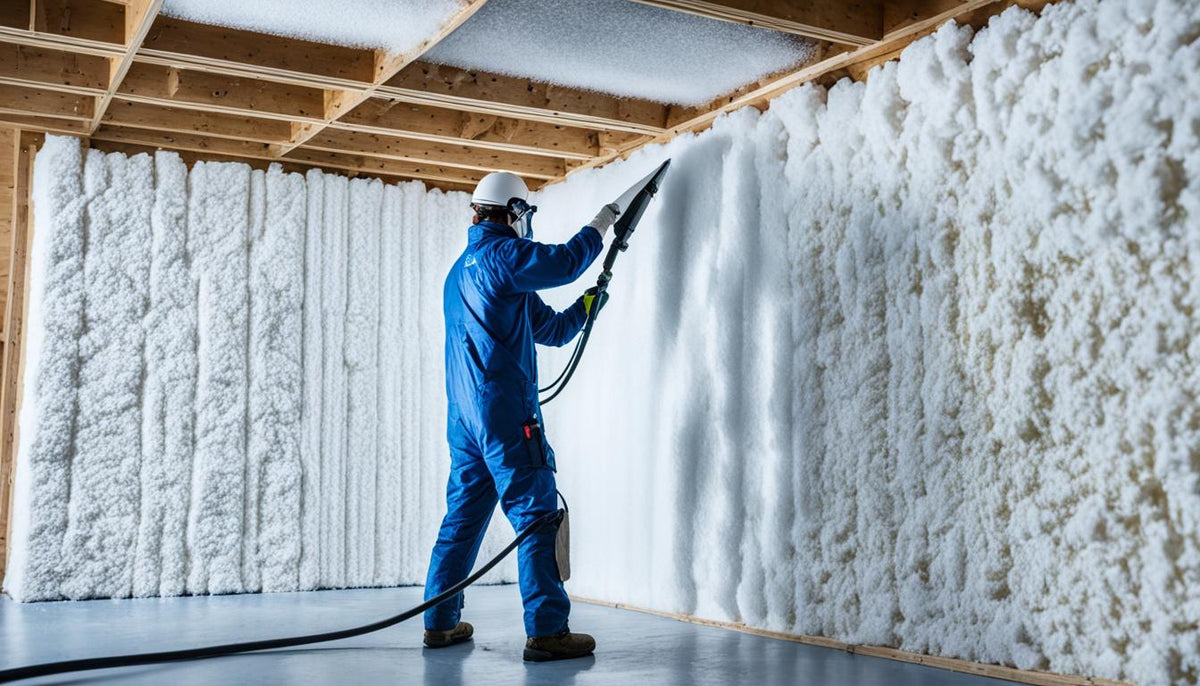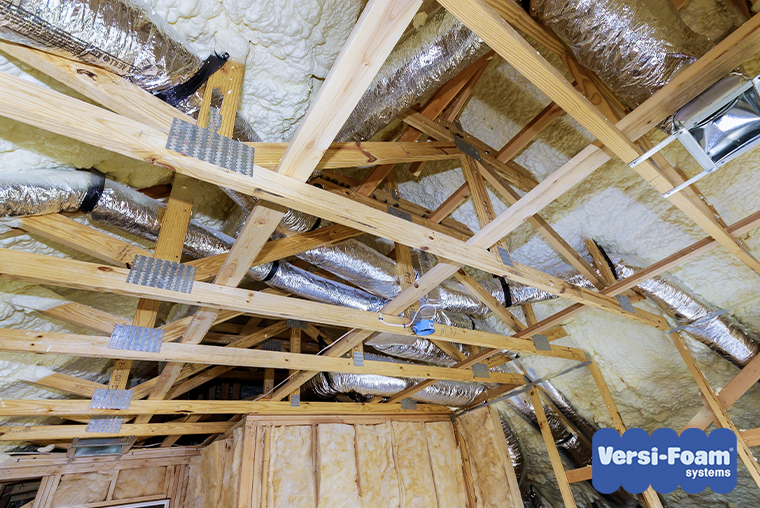Usual Myths Concerning Spray Foam: Debunking the Misconceptions
Leading Reasons to Pick Spray Foam for Your Next Insulation Task
When thinking about insulation choices for your next project, spray foam stands out due to its outstanding performance characteristics and efficiency advantages. As you evaluate your options, checking out the versatile applications and long-term benefits of spray foam might expose compelling reasons to include it into your insulation technique.
Superior Insulation Performance

The high R-value of spray foam, which gauges its thermal resistance, is another crucial benefit. Closed-cell spray foam, as an example, can accomplish an R-value of approximately 6.5 per inch, substantially surpassing fiberglass batts and cellulose. Spray foam insulation develops a closed seal, which reduces thermal connecting and decreases the potential for mold and mildew development due to moisture accumulation.

Power Performance Advantages
The energy efficiency benefits of spray foam insulation are substantial, more improving its charm as a top selection for constructing insulation. One of the primary advantages is its premium thermal performance. Spray foam expands upon application, creating an impermeable seal that lessens air leaks, which is a common resource of energy loss in traditional insulation products. By successfully decreasing thermal bridging, it keeps a constant indoor temperature, therefore reducing heating and air conditioning expenses.
Furthermore, spray foam insulation boasts a high R-value per inch, which implies it offers a lot more thermal resistance in less area contrasted to options like fiberglass or cellulose (Spray Foam). This performance not only adds to immediate power savings yet also promotes lasting sustainability by decreasing the total energy usage of a structure
Furthermore, the application of spray foam can certify property owners for power efficiency rewards and tax obligation credit histories, including financial advantages to its energy-saving capacities. In an era where energy preservation is extremely important, selecting spray foam insulation not only boosts convenience but likewise lines up with ecologically accountable techniques, making it a prudent option for both commercial and domestic jobs.
Dampness and Mold And Mildew Resistance
Offered its unique structure and application technique, spray foam insulation uses extraordinary wetness and mold and mildew resistance, making it an ideal choice for various environments. The closed-cell structure of spray foam creates a solid barrier that efficiently seals off potential moisture ingress, thus decreasing the possibility of mold growth. Unlike traditional insulation materials, which can absorb water and provide a reproduction ground for mold and mildew, spray foam continues to be unsusceptible wetness, improving the overall health of the indoor setting.
In addition, the application procedure of spray foam includes broadening and filling splits and spaces, making certain a limited seal that lessens air leaks. This characteristic not just boosts energy efficiency yet additionally assists control moisture degrees within the room. Correct humidity control is important for avoiding mold and mildew and mold, making spray foam insulation particularly advantageous in locations susceptible to dampness, such as cellars and crawl rooms.
In addition to its moisture-resistant residential properties, spray foam is likewise inherently immune to mold development. This characteristic makes certain that homes and structures continue to be healthy and balanced and secure gradually, offering tranquility of mind to property owners and structure managers alike.
Long-Term Price Cost Savings
Buying spray foam insulation yields substantial long-lasting price savings, largely with enhanced power performance. Unlike standard insulation materials, spray foam develops a closed seal that minimizes air leak. his explanation This decrease in drafts brings about lower cooling and heating expenses, as HVAC systems do not need to function as hard to maintain comfortable interior temperatures.
Moreover, the premium shielding residential or commercial properties of spray foam mean that homes stay constantly comfy year-round, decreasing dependence on energy-consuming devices. Over time, these cost savings can collect, causing a noticeable decrease in utility costs.
In addition, spray foam insulation contributes to the longevity of your home's structure by stopping dampness buildup and mold and mildew development, which can lead to costly repair work. With its toughness and resistance to resolving, spray foam maintains its effectiveness over the years, guaranteeing read here that the preliminary investment remains to settle.
Basically, selecting spray foam insulation not only improves your home's energy efficiency but likewise equates into considerable long-lasting monetary benefits, making it a wise financial investment for homeowners looking to lower prices while enhancing comfort and sustainability.
Versatile Application Options
Numerous application alternatives make spray foam insulation an extremely flexible choice for a variety of structure jobs (Spray Foam). This versatility allows it to be effectively made use of in property, industrial, and industrial setups, accommodating diverse insulation needs
Spray foam can be used in attic rooms, walls, creep areas, and even roof coverings, supplying seamless coverage that removes gaps and gaps where air leakages frequently happen. Its capacity to broaden upon application guarantees a limited seal, which is vital for energy performance and moisture control.
Moreover, spray foam insulation is offered in different solutions, including open-cell and closed-cell kinds, permitting customized services based on specific task demands. Open-cell foam is lighter and better matched for soundproofing, while closed-cell foam uses superior insulation and architectural honesty, making it suitable for locations revealed to dampness.
Furthermore, spray foam can be applied in hard-to-reach areas, enhancing its suitability for retrofitting existing structures. With the capability to follow different substratums, consisting of concrete, timber, and steel, spray foam insulation attracts attention as a flexible alternative that fulfills the demands of contemporary structure practices.
Conclusion
Finally, spray foam insulation becomes an exceptional choice for insulation jobs because of its phenomenal thermal resistance, energy efficiency, and ability to create airtight seals that avoid moisture and mold growth. The long-term cost savings associated with reduced utility costs better boost its allure. In addition, see this its convenience in application throughout different settings highlights its practicality and effectiveness. Selecting spray foam insulation ensures a comprehensive remedy that fulfills the needs of contemporary construction and energy effectiveness requirements.
When it comes to attaining optimal power effectiveness in domestic and business structures, spray foam insulation stands out for its superior insulation performance.The energy performance advantages of spray foam insulation are significant, additional enhancing its allure as a top selection for building insulation.Spending in spray foam insulation yields considerable long-term expense savings, largely via improved energy performance.In final thought, spray foam insulation arises as an exceptional option for insulation projects due to its phenomenal thermal resistance, energy performance, and ability to create airtight seals that protect against dampness and mold and mildew development. Selecting spray foam insulation makes certain a comprehensive option that meets the needs of modern-day construction and energy effectiveness standards.